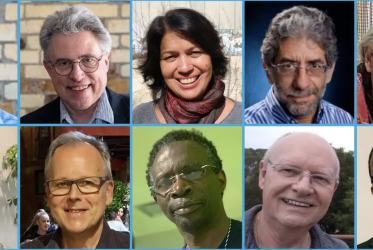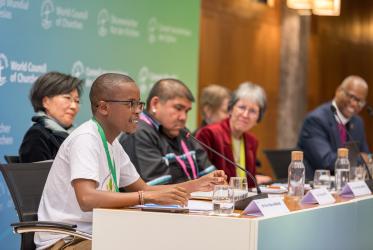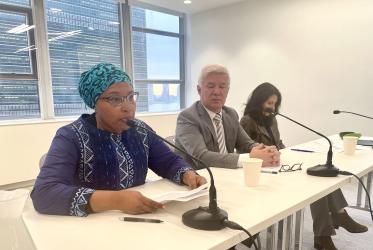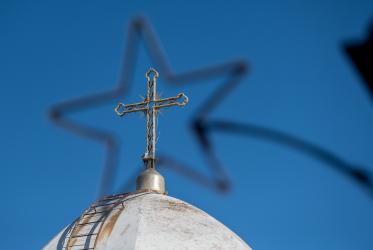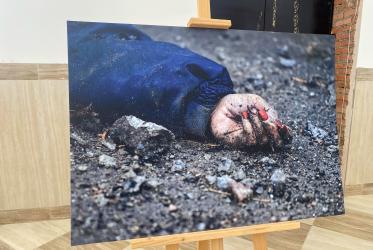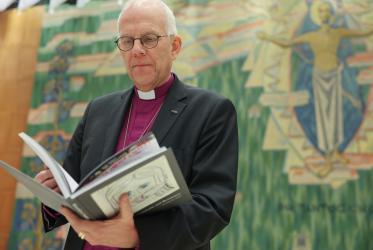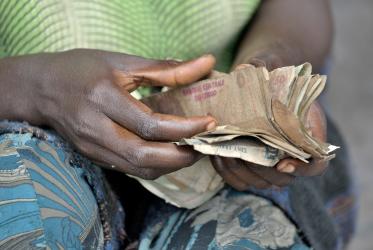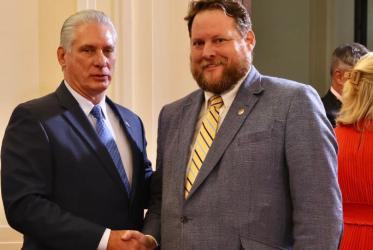Displaying 1 - 20 of 457
What can churches do to prevent modern slavery?
22 February 2024
Ecumenical spirit moves Bossey students at mass with Pope Francis
01 February 2024
Messages of hope amid strife ring for New Year
11 January 2024
Tackling sexual violence in war
14 December 2023
Thirty days that changed the ecumenical movement
23 October 2023


